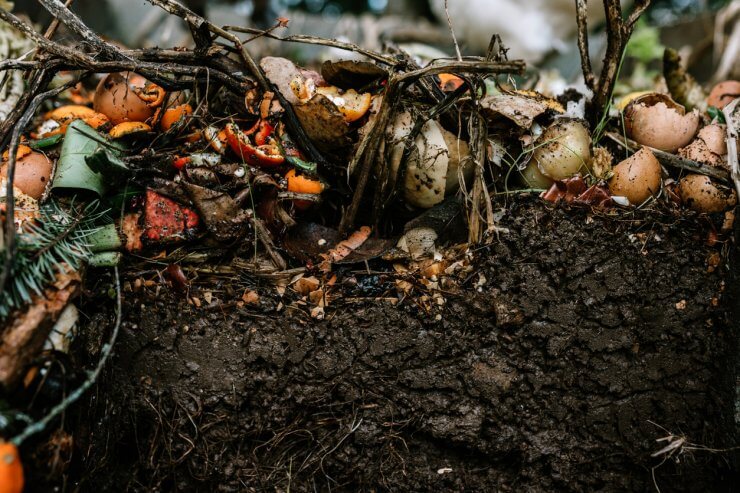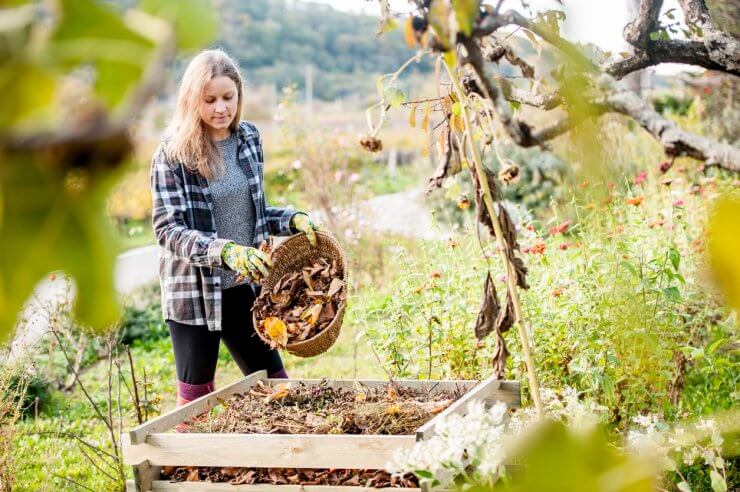
I sometimes feel like a magician when I work on my compost pile. A few potato peels, a bell pepper core, and some coffee grounds go into the pile, and within a few weeks, out comes gardening gold. Learning how to compost has been such a gardening game-changer for me. I’ve saved tons of money by not having to buy soil additives and bagged compost. And I feel a sense of pride knowing that I was able to nourish my garden by repurposing food scraps and other paper waste. Recently I noticed my compost pile increasing in size, faster than I seemed to be using it. But can compost go bad? I did some research and here’s what I found.
Discover 7 top tips for growing, harvesting, and enjoying tomatoes from your home garden—when you access the FREE guide The Best Way to Grow Tomatoes, right now!
Can compost go bad?
The short answer is, “Not really.” Now, that doesn’t mean all compost will nourish your garden no matter what. It just means that you probably won’t damage your garden with compost even if it’s a little… off. When the ratio of green materials, brown materials, moisture, and air gets out of whack, it can affect how well your finished compost works.
Compost sensory facts
There are a few different ways to tell if your compost is struggling. It all boils down to paying attention. Notice what your compost pile is telling you by using your senses. Don’t worry, we won’t be tasting the compost! Using your sense of smell and touch, here are five signs your compost needs attention and what to do to fix it.

1. It’s slimy
Slimy compost indicates an anaerobic environment. Anaerobic is just a fancy way of saying “no oxygen.” If your compost is anaerobic it means that it’s not getting enough oxygen. The simple fix is to spread it out and let it dry a bit. Add new ingredients, a bit of water, and pile it back up. It’s also helpful if you can turn your compost pile from time to time to introduce more oxygen. Some compost bins are shaped like a sideways drum that allows for easy tumbling to help with this process.
2. It smells like garbage
Compost piles aren’t going to smell like roses, but they shouldn’t smell terrible either. In general, healthy compost should smell earthy. If your compost pile smells like a garbage truck, there’s a good chance it needs more airflow. Just like with slimy compost, smelly compost can be fixed by spreading out your pile. Add a few small branches or large twigs to the base of your new pile and re-stack your compost. The twigs create space in the pile for oxygen to move and prevent the pile from packing too tightly.
3. It smells like ammonia
You might ask “Can compost go bad” if your compost pile begins to smell like ammonia. It’s a fair question, especially if your eyes are watering any time you’re near your compost pile. When compost becomes nitrogen-heavy it usually means that the ratio of brown to green materials is off. (The general rule of thumb is 50/50). Try adding some more brown materials like sawdust, paper, cardboard, twigs, and dried leaves.

4. It’s too dry
This one’s tricky because sometimes a compost pile just looks and feels dry on the surface. Dig into your compost with a shovel and turn the center of the pile. If the center is moist, you just need to add more brown material. Adding bits of cardboard and paper throughout the pile will help evenly distribute and retain moisture. If your pile is dry in the center and on the surface, it may mean there’s too much brown material. Try adding more green material like vegetable scraps and grass clippings. If it’s particularly hot outside, be sure to water your compost pile every few days.
Let’s go back to the original question of, “Can compost go bad?” Compost won’t spoil like milk or rotten eggs. But if the ratio of air, water, brown material, and green material is off, your compost will let you know! The key is to pay attention and pick up on sensory clues.
Have you ever asked yourself, “Can compost go bad?” What were your first clues that something was off? Share with me in the comments!
Discover 7 top tips for growing, harvesting, and enjoying tomatoes from your home garden—when you access the FREE guide The Best Way to Grow Tomatoes, right now!





Okay were is number five, I think it did’nt make it to press.
I never saw the 5th thing?????
Excellent article!
Does using something like “Rot-it” help the composting process?